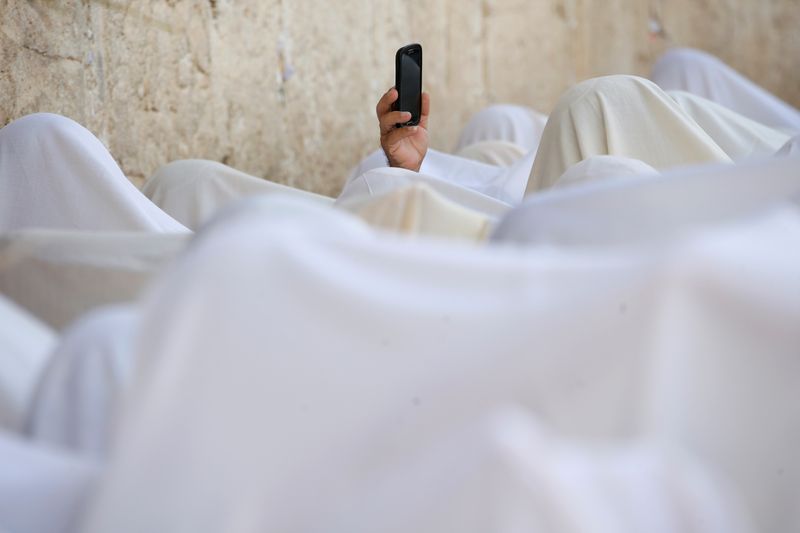JERUSALEM (Reuters) – Israel’s Supreme Court on Monday banned the government from sweeping use of mobile phone tracking of coronavirus carriers, calling the measure a grave infraction of civil liberties.
Used on and off since March 2020 in efforts to curb the pandemic, the Shin Bet counter-terrorism agency’s surveillance technology matched carriers’ locations against other mobile phones nearby to determine with whom they came into contact.
From the outset, civil rights groups had mounted court challenges over privacy concerns while lawmakers cast doubt about the efficacy of the contact-tracing tool.
In its ruling, the court said it feared the mobile phone tracing, imposed as a temporary emergency measure, was slowly becoming permanent. It gave the government until March 14 to end indiscriminate use of the surveillance and limit it to confirmed coronavirus carriers who refuse epidemiological questioning.
“We hope this ruling will lead the government and the Knesset (parliament) to pause and change course from this slippery slope of using extreme and undemocratic means in the fight against the epidemic,” the Association for Civil Rights in Israel, one of the groups that petitioned the court, said in a statement.
As of December, surveillance alone had accounted for 7% of case detections in Israel, according to the Intelligence Ministry, with questioning by Health Ministry investigators accounting for the rest. But officials have argued that it has helped save many lives.
“I think this is a crime against the health of Israeli citizens,” Deputy Health Minister Yoav Kisch said on Twitter after the Supreme Court verdict.
The Shin Bet phone tracing technology was previously known mostly as a means to track down wanted Palestinian militants.
Israel has so far reported 778,172 coronavirus cases and 5,758 deaths.
With a third wave of infections peaking in January, contagion has been falling in recent weeks as authorities have administered at least one of two COVID-19 vaccination doses to more than half of the country’s population of 9 million.
(Editing by Jeffrey Heller; Editing by Mark Heinrich)





















